Arun Anand - Know About RSS
Here you can read online Arun Anand - Know About RSS full text of the book (entire story) in english for free. Download pdf and epub, get meaning, cover and reviews about this ebook. publisher: Prabhat Prakashan, genre: Religion. Description of the work, (preface) as well as reviews are available. Best literature library LitArk.com created for fans of good reading and offers a wide selection of genres:
Romance novel
Science fiction
Adventure
Detective
Science
History
Home and family
Prose
Art
Politics
Computer
Non-fiction
Religion
Business
Children
Humor
Choose a favorite category and find really read worthwhile books. Enjoy immersion in the world of imagination, feel the emotions of the characters or learn something new for yourself, make an fascinating discovery.
- Book:Know About RSS
- Author:
- Publisher:Prabhat Prakashan
- Genre:
- Rating:4 / 5
- Favourites:Add to favourites
- Your mark:
- 80
- 1
- 2
- 3
- 4
- 5
Know About RSS: summary, description and annotation
We offer to read an annotation, description, summary or preface (depends on what the author of the book "Know About RSS" wrote himself). If you haven't found the necessary information about the book — write in the comments, we will try to find it.
Know About RSS — read online for free the complete book (whole text) full work
Below is the text of the book, divided by pages. System saving the place of the last page read, allows you to conveniently read the book "Know About RSS" online for free, without having to search again every time where you left off. Put a bookmark, and you can go to the page where you finished reading at any time.
Font size:
Interval:
Bookmark:
Know About RSS
Arun Anand

For
Seema and Tejas
T here have been a number of books on the Rashtriya Swayamsevak Sangh (RSS). Most of these books have been either anti-RSS or pro-RSS. Interestingly, a significant number of supporters and detractors of the RSS have been carrying on with their arguments without even knowing enough about the RSS itself! This book is an attempt to fill this gap and provide factual information how the RSS functions and what is its organisational structure. It has taken me around two years to do the research and write this book. So many people helped me with the research that it wont be possible to name all here. I thank everyone of them. I have tried to check and cross check the facts to the best of my ability. I would be glad to know if there are any errors in the book as this would help me to rectify the mistakes and provide a better version in coming editions. I thank all those who have provided support in writing this book, especially the editing and designing team at Prabhat Prakashan.
My friends (Vijay, Sanjey, Girija, Himanshu, Pankaj, Neelkant, Vinita, Vinay) have been a great source of strength for me. I am blessed to have such friends and a very supportive family. Most of all I thanks my readers for taking time out to read this book. I keenly await their feedback.
Arun Anand
The Beginning
T he RSS was founded by a medical doctor Dr. Keshav Baliram Hedgewar who devoted much of his life for setting up an organisation which has today grown to become arguably the largest voluntary organisation in the world. RSS has around 50,000 Shakhas (a daily gathering of volunteers) around over the country. This does not include millions of volunteers who work in various frontal organisations of RSS. Over a period of time, the RSS and its frontal organisations have come to be known as, Sangh Parivar (Sangh family).

Keshav was born on Sunday, 1st April, 1889. He started RSS at the age of around 36 years with a handful of teenagers in Nagpur in 1925. The Hedgewar family originally hailed from Kandkurti village in Telangana. Near the village is the sacred confluence of Godavari, Vanjra and Haridra rivers. This confluence finds mention in several Indian sacred texts. The place also witnessed a confluence of three robust Indian languages Kannada, Telugu and Marathi. At one time, the place was a hub of scholars.
But to look out for better opportunities, many Brahmin families left Telangana region. Many of them settled down in Nagpur as the Bhonsle Rulers were known to be patrons of Vedic learning. Among them was Narhari Shastri, whose great grandson was Baliram Pant Hedgewar. In 1853, Nagpur came under the British rule. Vedic learning took a backseat after that as English education took over the former. As a result, many scholars had to resort to priesthood to earn their livelihood. Baliram Pant was one of them. Priesthood didnt bring much money to the family and there were severe financial constraints. Even under such conditions, Baliram along with his wife Revatibai lived a life of contentment. They had in all six children including three sons Mahadev, Seetaram and Keshav; and three daughters Saroo, Rajoo and Rangoo. Keshav was the fifth child.
At the age of 13, Keshav lost both his parents to plague. But he continued with his studies amidst quite adverse conditions. He studied in various institutions in Nagpur, Yavatmal and Poona and joined the national movement for freedom. He was greatly influenced by the firebrand nationalism of Lokmanya Tilak. In 1910, he left for Calcutta to study medicine. Trilokynath Chakravarty has written in his book titled Thirty Years in Jail, that Keshav Baliram Hedgewar was granted membership of Anushilan Samiti, a well-known revolutionary group of freedom fighters at that time. Keshav studied medicine and stayed in Kolkata from 1910 to 1916.
He came back to Nagpur in 1916 and, along with his friend Bhauji Kavre, tried to set up revolutionary groups in Vidharbha and Marathwada regions but these efforts were met with limited success. While trying to set up these groups, he came in contact with the Akharas and Vyayamshalas (Gymnasiums), in Nagpur. In 1921, there were around 230 Akharas. The number increased to 570 by 1931. Dr. Hedgewar had developed a strong network among many of these Akharas (which were also local gymnasiums like Vyayamshalas, where traditional Indian sports like wrestling, were practised). He developed this network while working for the national freedom movement. In 1921, he participated in the Non-Cooperation Movement and was jailed by the British government on various charges including that of sedition. He read out a written statement in August 1921, while being on trial on the charges of sedition. The written statement said:
1. It has been charged that my speeches have spread discontent, hatred and feelings of sedition towards the British Empire in the minds of Indians and sown seeds of enmity between Indians and Europeans. And I have been asked to explain. I consider it an affront to the dignity of my great country that a foreign government should subject a native Indian to inquiry and sit in judgement.
2. I do not recognize that there exists in India today any lawfully established government. It will be surprising if anybody should claim so. What obtains today is a regime of usurped authority and a repressive rule deriving power therefrom. The present laws and courts are but handmaids of this unauthorized regime. In any part of the world, it is only a government of the people constituted for the people that is entitled to administer law. All the other forms of rule are but ruses adopted by deceitful usurpers to loot helpless nations.
3. What I tried to do was to inspire in the hearts of my countrymen an attitude of reverential solicitude for their motherland which at the moment happens to be in a wretched condition. I tried to instill in the people the conviction that India belongs to Indians. If an Indian speaking for his country and spreading the nationalist feeling is regarded as committing sedition, if he cannot speak the truth without promoting hatred between Indians and Europeans, Europeans and those claiming to be the Indian government would do well to bear in mind that the day is not far off when foreigners will be forced to quit this country.
4. The governments version of my speech is neither accurate nor complete. Some stray notes and absurd sentences have been sloppily put together. But that does not bother me. In dealing with Britain and Europeans, I have borne in mind only the basic principles that ought to govern the relationship between two countries. Whatever I have said has been with a view to asserting the birthright of my countrymen and the inevitability of securing our independence. I am prepared to stand by each word that I have uttered. Though I cannot say anything else concerning the charges against me, I am prepared to justify each word and letter of my speech; and I declare that whatever I have said is lawful.
A British judge exclaimed after hearing the statement: His defense is even more seditious than his original speech! Dr. Hedgewar was sentenced to one year imprisonment. He was released in July 1922 from Ajani Jail and the same evening a public reception was organised in which the then senior Congress leader Motilal Nehru (father of independent Indias first Prime Minister Pandit Jawahar Lal Nehru), and Hakim Ajmal Khan also addressed the gathering. The weekly
Next pageFont size:
Interval:
Bookmark:
Similar books «Know About RSS»
Look at similar books to Know About RSS. We have selected literature similar in name and meaning in the hope of providing readers with more options to find new, interesting, not yet read works.
Discussion, reviews of the book Know About RSS and just readers' own opinions. Leave your comments, write what you think about the work, its meaning or the main characters. Specify what exactly you liked and what you didn't like, and why you think so.

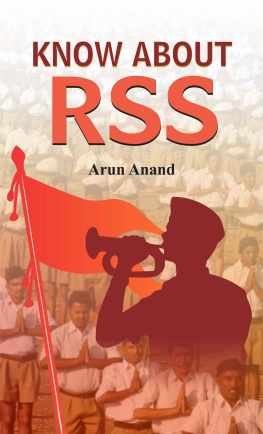
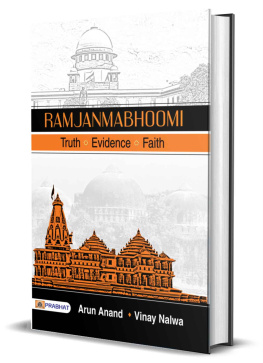
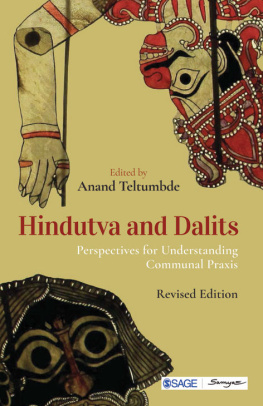
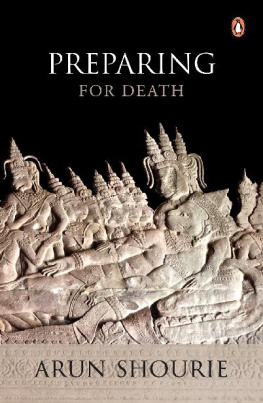
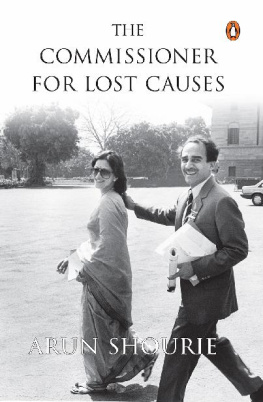
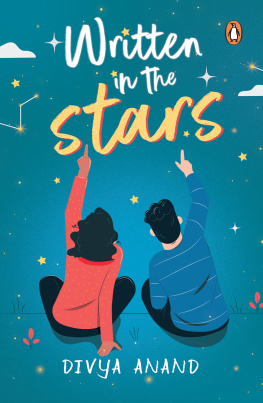
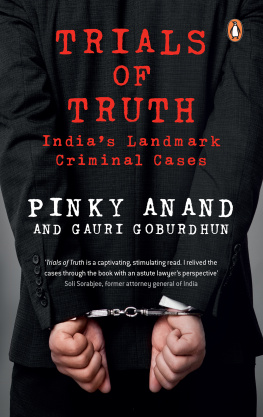
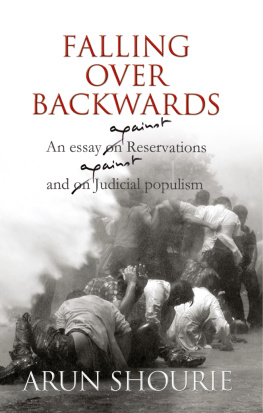
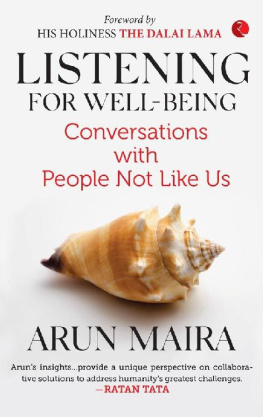
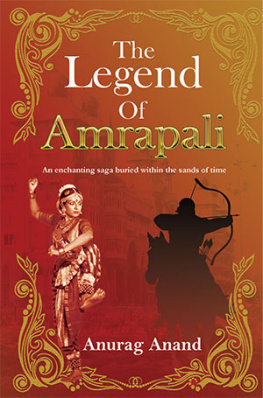

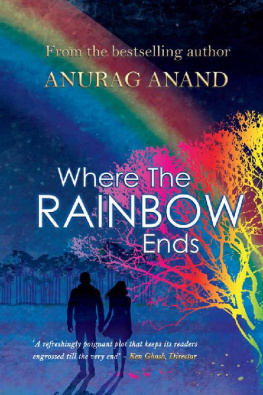
![Anita Anand - The Library Book. Anita Anand ... [Et Al.]](/uploads/posts/book/40194/thumbs/anita-anand-the-library-book-anita-anand-et.jpg)